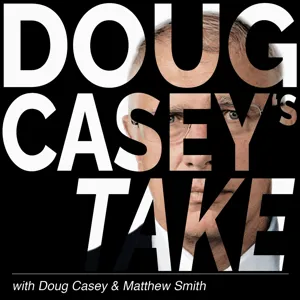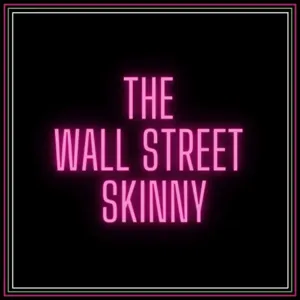Podcast Summary
Lessons from the past: 1920s and present day wealth disparity: The 1920s and present day share similarities in terms of wealth disparity and the role of credit and consumerism in the economy, with the potential for financial instability if not managed responsibly.
The 1920s and the present day share similarities in terms of wealth disparity and the role of credit and consumerism in the economy. The 1920s, known as the era of excess, saw people spending beyond their means and investing in securities, leading to the biggest stock market crash in history and the Great Depression. Fast forward to the present day, and we see a similar trend of wealth accumulation through credit and consumerism, which can lead to financial instability. The episode "A Century of Money" from the TED Radio Hour delves deeper into these personal stories and lessons from the past and offers insights on how we can learn from past financial crises to build a more stable future.
Fed's Monetary Policies During The Great Depression: The Fed's inconsistent interest rate policies during the Great Depression led to an economic bubble, a stock market crash, and widespread bank failures. FDR's presidency introduced deposit insurance and an active government role in the economy to prevent future crises.
During the Great Depression in the late 1920s, the Federal Reserve's monetary policies contributed to an unsustainable economic bubble. The Fed raised interest rates at the beginning of the decade and kept them low in the middle to help Europe, leading to excessive borrowing and demand for assets. The Fed was hesitant to lower rates due to fear of bursting the bubble, which eventually led to a stock market crash in 1929. The aftermath saw a wave of bank failures due to a lack of deposit insurance and the Fed's failure to act as a lender of last resort. FDR's presidency in 1933 marked a turning point, with the government taking a more active role in the economy, and the introduction of deposit insurance to prevent future bank runs.
Deposit insurance stopped bank runs during the Great Depression: Despite deposit insurance, financial crises continue due to excessive borrowing, risky investments, and lack of government oversight, highlighting the importance of learning from history and addressing root causes
Deposit insurance, introduced during the Great Depression, was a game-changer that stopped bank runs by instilling confidence in people that their money was safe. However, despite this important lesson from history, financial crises continue to occur, and the reasons include excessive borrowing, risky investments, and lack of government oversight. It seems that Americans' optimistic nature and tendency to believe things that are too good to be true contribute to these crises. Understanding the past can help us avoid repeating the same mistakes, but it's crucial to learn the right lessons and address the root causes of financial instability.
Emotional roots of money issues: Money issues often stem from deeper emotional experiences and shame. Addressing the emotional and mental aspects can prevent financial struggles from escalating.
Money issues often stem from deeper emotional experiences and shame, leading individuals to seek happiness and validation through material possessions. This was the case for Tammy Lally, who grew up feeling ashamed of her financial situation in an upper-class neighborhood. She later became a high earner to hide her shame, but her brother's financial struggles in 2006 served as a wake-up call. During their meeting, Tammy discovered that their financial problems were rooted in emotional tension and blame between them. Despite having a seemingly straightforward solution, the emotional capacity of the couple prevented them from implementing it. Tragically, Tammy's brother ultimately took his own life due to the overwhelming financial pressure. This story highlights the importance of addressing the emotional and mental aspects of money issues, rather than just focusing on the numbers.
Link between money struggles and emotional health issues: Acknowledge the importance of money in society and take active steps to understand and manage it to prevent deeper emotional and mental health issues.
Money struggles can lead to deeper emotional and mental health issues, including shame, addiction, and even suicide. The speaker's brother, who left behind a family and a foreclosed home, is a tragic example of this link between financial instability and personal crisis. To break this cycle, individuals must first examine their own beliefs and behaviors around money, seeking spiritual solutions rather than material ones. This requires acknowledging the importance of money in our society and taking active steps to understand and manage it, rather than avoiding or pretending it doesn't matter. As the speaker Tammy Lally emphasizes, everyone cares about money, and ignoring it won't make it go away. The stories of those who have lost their financial footing, like Elizabeth White who lost her job and safety net during the 2008 recession, underscore the importance of addressing money struggles head-on.
The difference between being broke and poor: The essay highlights the need for systemic solutions to address economic insecurity and the importance of addressing the shame and denial surrounding financial struggles.
The distinction between being broke and poor is not just semantic, but it can have significant implications for one's financial security and sense of self. The essay describes a friend's experience of entering old age without adequate savings, a reliable income, or retirement benefits. Despite her education and talent, she faces the uncertainty of making ends meet and the stigma of being seen as less than self-sufficient. This situation is not unique, as the essay points out, with millions of Americans facing similar challenges due to the erosion of traditional sources of income and security. The essay highlights the need for systemic solutions to address the root causes of economic insecurity, such as stagnant wages, disappearing pensions, and rising costs of living. It also underscores the importance of addressing the shame and denial surrounding economic struggles, so that individuals and society can work together to find solutions and support those in need.
Older adults face unique economic challenges during crises: Older adults struggle financially during crises with insufficient safety nets, low wages, and lack of healthcare and childcare support, while more people lose jobs than during the Great Recession.
The economic impacts of crises are particularly challenging for older adults, and the safety nets designed to help them are insufficient for many. Elizabeth White, a guest on Pop Culture Happy Hour, shared her personal experience of struggling financially after the 2008 recession. Since then, the situation has worsened, with more people losing jobs than during the entire Great Recession, and older adults being disproportionately affected. Even those who manage to find employment often face low wages and lack adequate healthcare and childcare support. The crisis extends beyond employment, as jobs in essential industries, such as home healthcare, offer meager salaries. The pandemic has highlighted these issues, but they are not unique to older adults. Millennials and Gen Xers are also facing economic challenges, including rising costs of housing and healthcare. The conversation around economic resilience and support for older adults is more relevant than ever.
Disney's moral obligation to its workers: Disney's granddaughter, Abigail, was dismayed to find some employees relied on food stamps, emphasizing the importance of corporations providing a living wage.
Corporations, especially large ones, have a significant responsibility towards their lowest-paid workers. This was a belief held by Roy O. Disney, co-founder of Disney Corporation, who instilled this value in his granddaughter, Abigail Disney. In her grandfather's time, Disney employees could expect a secure job, decent benefits, and a comfortable life. However, over time, these benefits were gradually stripped away, leaving many employees struggling to make ends meet. Abigail, who is a shareholder and an activist, was shocked to discover that some Disneyland employees were relying on food stamps. This experience underscored the importance of corporations living up to their moral obligation to their workers and ensuring they earn a living wage.
The prioritization of shareholder value over employee well-being: Since the mid-20th century, American companies have shifted from prioritizing employee benefits and job security to focusing on maximizing shareholder value, resulting in eroded wages, benefits, and job security for workers.
The shift in corporate priorities from the well-being of employees to shareholder primacy, which began in the mid-20th century, has led to the erosion of job security, benefits, and fair compensation for American workers. This change was driven by a combination of factors including economic theories, lobbying, and tax laws, but it was also fueled by a shift in societal norms that allowed for excessive executive compensation. Companies like Disney, which once prioritized the importance of family and imagination, now struggle to provide basic necessities for their hourly workers. The pandemic has further exposed this issue, with Disney laying off tens of thousands of employees while maintaining high compensation packages for management. This trend is not unique to Disney, but rather a systemic issue that requires a collective effort to address.
CEO Shame: Abigail Disney's Call for Dignity and Respect for Essential Workers: Abigail Disney urges CEOs to treat essential workers with dignity and respect, not exploit them for profit. She believes everyone deserves a life with dignity.
The widening wealth gap and the treatment of essential workers have been major issues for decades, and the pandemic has only highlighted these problems. Abigail Disney, in her TED Talk, expressed her belief that CEOs should feel shame if their employees need food stamps or rely on food pantries. She urged companies to treat their workers with dignity and respect, as they are human beings with the same needs and desires as everyone else. Despite the pandemic, some billionaires have doubled down on old behaviors, taking advantage of the situation. Disney called on CEOs like Jeff Bezos to pay their employees well and ensure everyone is making a living wage. If a business plan relies on exploitation, Disney suggests finding another business plan. Ultimately, she believes that everyone deserves a life with dignity. Despite the challenges, there are efforts being made to use platforms like TikTok for good, such as combating misinformation about mental health.






